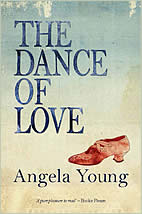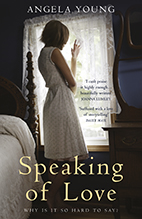This is both the thing I’m writing about this month and the thing I’d love to have written, in a parallel universe where time is infinite and all things are possible: What an entirely brilliant and inspiring idea. It begins with Boadicea, not Boudicca, because:
What an entirely brilliant and inspiring idea. It begins with Boadicea, not Boudicca, because:
To me … she will always be Boadicea because I was ten years old when I came across her, and she became the first woman to make me realise that the designated future of a girl born in 1950 – to be sweet, domesticated, undemanding and super-feminine – did not necessarily have to be the case.
After a bit of a trek round London, Murray’s first visit, she ‘got a little bored with the endless parade of statues which Dad proudly pointed out as REALLY IMPORTANT HISTORICAL FIGURES’, until she saw this:

Boadicea and her Daughters by Thomas Thornycroft
and noticed her carriage, the lethal blades sticking out from the wheels and her massive horses rearing. ‘She’s in complete control.’ And she liked Boadicea because of a love of horses instilled in her by her grandfather at the tender age of two. And so began Murray’s own journey which her education fuelled. She realised, ‘at a wonderful girls’ high school in Barnsley’ that ‘there were women who influenced history and challenged the assumption that a woman’s place was in the home.’
As a child of the Fifties myself I realised, rather later than Murray, that domestic slavery wasn’t the only course open to me, but I always felt it. Always I sensed there wasn’t any difference between women and men when it came to ability and intelligence, ideas and ambition. What was different was education, access and encouragement. What I realised was that, as a woman, I had to be willing to stand out and stand up whether in the domestic or the wider world. The personal is political, as women began to say in the late Sixties. My personal stand was not to marry (I worried I wouldn’t have the strength to ignore the daily chores or ask him to do them so that I could write) and I never have (married). But now that I live with my other half, we live in what what one of my sisters called ‘a very democratic household’ and I do write.
I haven’t led an army, I haven’t stood for Parliament, I wasn’t the first woman to write fiction nor am I a scientist, but I made my own stand in order to write fiction and the burgeoning feminist atmosphere that surrounded me as I grew up helped beyond measure.
Murray’s book is dedicated to ‘All the young people who need to know’. I wish it had existed when I was one of those young people but the fact that it does now, for them, is essential and right. The 21 are: Boadicea, Queen Elizabeth I, Aphra Benn, Caroline Herschel, Fanny Burney, Mary Wollstonecraft, Jane Austen, Mary Somerville, Mary Seacole, Ada Lovelace, Elizabeth Garrett Anderson, Millicent Garrett Fawcett, Emmeline Pankhurst, Ethel Smyth, Constance Markievicz, Gwen John, Nancy Astor, Barbara Castle, Margaret Thatcher, Mary Quant and Nicola Sturgeon. Murray is eloquent about those she’s left out and why, in her Introduction and, at the front of the chapter about Mary Wollstonecraft and her Vindication of the Rights of Woman is Wollstonecraft’s:
‘I do not want them [women] to have power over men, but over themselves … It is not empire, but equality and friendship which women want.’
As Wollstencraft also wrote, ‘Their [womens’] first duty is to themselves as rational creatures.’ Thank you Jenni Murray for directing our attention to these remarkable women and so to our own remarkable selves.





Leave a Reply